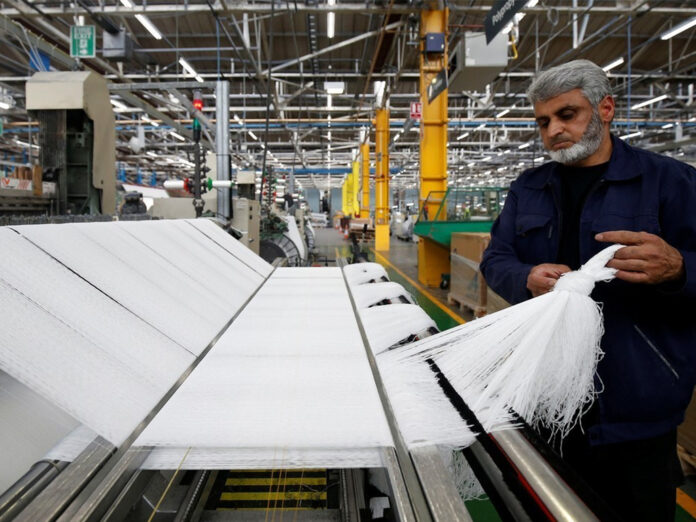LAHORE: All Pakistan Textile Mills Association (APTMA) Punjab Chairman Abdul Rahim Nasir has urged the government to immediately announce a new textile policy to attract investment in the textile industry, warning that a delay in forming the policy may result in lost investments.
“The textile value chain is being affected badly due to a delay in the announcement of the new textile policy,” he lamented.
In a statement issued on Wednesday, Nasir appealed before Prime Minister Imran Khan and Adviser on Commerce and Investment Abdul Razzak Dawood for an early announcement of the policy so that the industry could avail its benefits through its implementation.
Currently, Nasir said, Pakistan is short in production capacity and many exporters are refusing export orders due to this reason. “A clear long-term policy will give investors a clear vision that the government is ready to support the textile chain on a long-term basis.”
According to the APTMA Punjab chairman, the new textile policy carries the potential of taking the textile sector out of the prevalent crisis-like situation.
He said that APTMA’s leadership has been making efforts to secure an export-led textile policy. In this regard, he added, a team led by former APTMA chairman Ahsan Bashir has submitted a draft for a five-year policy to the PM which has addressed the shortcomings in the previous policies.
Appreciating the Pakistan Tehreek-e-Insaf (PTI) government’s interest to resolve industry issues in order to achieve export and growth targets, Nasir said the textile industry is hopeful for an upsurge in exports once the government implements the entire policy in letter and spirit.
He maintained that the timely implementation of a long-term policy would not only bring new investments in the country but also enable the industry to achieve the target of $30 billion exports in the next five years.
According to APTMA Punjab chairman, Pakistan has an export potential of $50 billion provided the local industry is facilitated with regionally competitive energy tariffs and business-friendly environment.
He said 2020 was a challenging year both for the government and the industry due to the pandemic which plunged the global economy to the worst recession. This pandemic is fraught with risks of losing on massive export orders in the wake of the closure of markets, he added.
“The local industry strived hard for its survival in this testing time; we all stood like an iron wall against the challenges and it all resulted in regaining the lost market at a fast pace,” he concluded.




